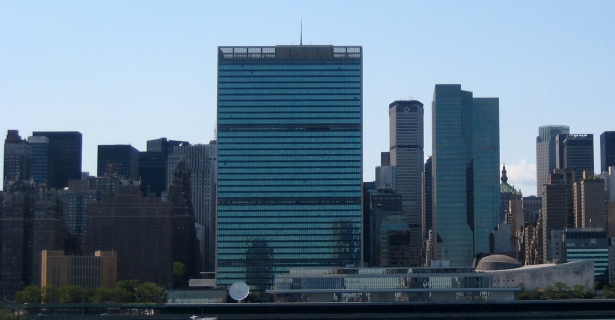This summer, I’m interning with the United Nations, in the Department of Peacekeeping Operations (DPKO). This blog was meant to mark the halfway mark of this 12-week internship; some unexpected housing hassles have pushed it to the end of Week Seven instead. Learning quite this much about property markets and public transport in New York wasn’t on my to-do list when I started here; then again, I’m sure the knowledge will come in handy some day!
As to work: I’m interning with the Security Sector Reform (SSR) Unit, which is one of the five offices that form the Office of Rule of Law and Security Institutions (OROLSI). As the name suggests, OROLSI combines the various functions that support countries emerging from armed conflict; the goal of the office is to make that transition as smooth, effective, and sustainable as possible. It was created after the last major review of UN Peacekeeping, a decade ago, which suggested that such support to transitions was itself a form of conflict prevention.
Within that broader endeavour, my unit’s raison d’etre is the particular challenge of establishing civilian control over military, paramilitary, and security forces – or, as the unit’s logo puts it, “Making people safer through effective and accountable security institutions”.
This is, to put it mildly, a challenging task: it calls for the reconfiguring of power relations within the military, and between the military and civilian authorities, and the restoration (or construction) of trust between government, military, and citizens. I had an ideal opportunity to learn about how the UN implements it last month – about 5 weeks into the internship – when my unit convened a number of SSR practitioners and experts from around the world for its annual retreat and workshop, at the stunningly beautiful Greentree Foundation in Manhasset, NY.
This is a highly anticipated event, and I’d been helping with preparations for much of my first month as an intern: logistics, speechwriting, designing workshop evaluation forms, and so on. At the workshop, I was taking notes (and interviewing many attendees – strictly off the record)! I also spent most of the week after our return writing up records and lessons learned, in various versions – for my unit, for participants, for the broader UN system, and so on. As a psychologist with an interest in how organisations learn, I found the whole experience fascinating.
This past week, I’ve been working on the unit’s quarterly newsletter, which describes the latest developments in various UN Missions with a security sector-related mandate. I was put in charge of preparing the draft, which meant collecting reports from my colleagues, compiling them into one giant document, and then some ruthless editing to comply with a strict 2000-word limit. That draft is now with a layout designer, being set to a newly-developed template; I’m quite looking forward to seeing the finished product next week!
The newsletter has been a great way to get a comprehensive overview of the unit’s work and priorities; the rest of my internship will now focus on a research project. I’ll probably be examining instances of UN-supported community security, community policing, and non-state-centric security arrangements. This is a subject I want to explore in my thesis; it’s also a highly relevant topic for my colleagues in the unit working on militia integration and demobilisation in Mali and the Central African Republic, and regional approaches to security in Somalia and Guinea-Bissau.
Ameya Naik is a dual-degree MALD/LLM student at The Fletcher School.

